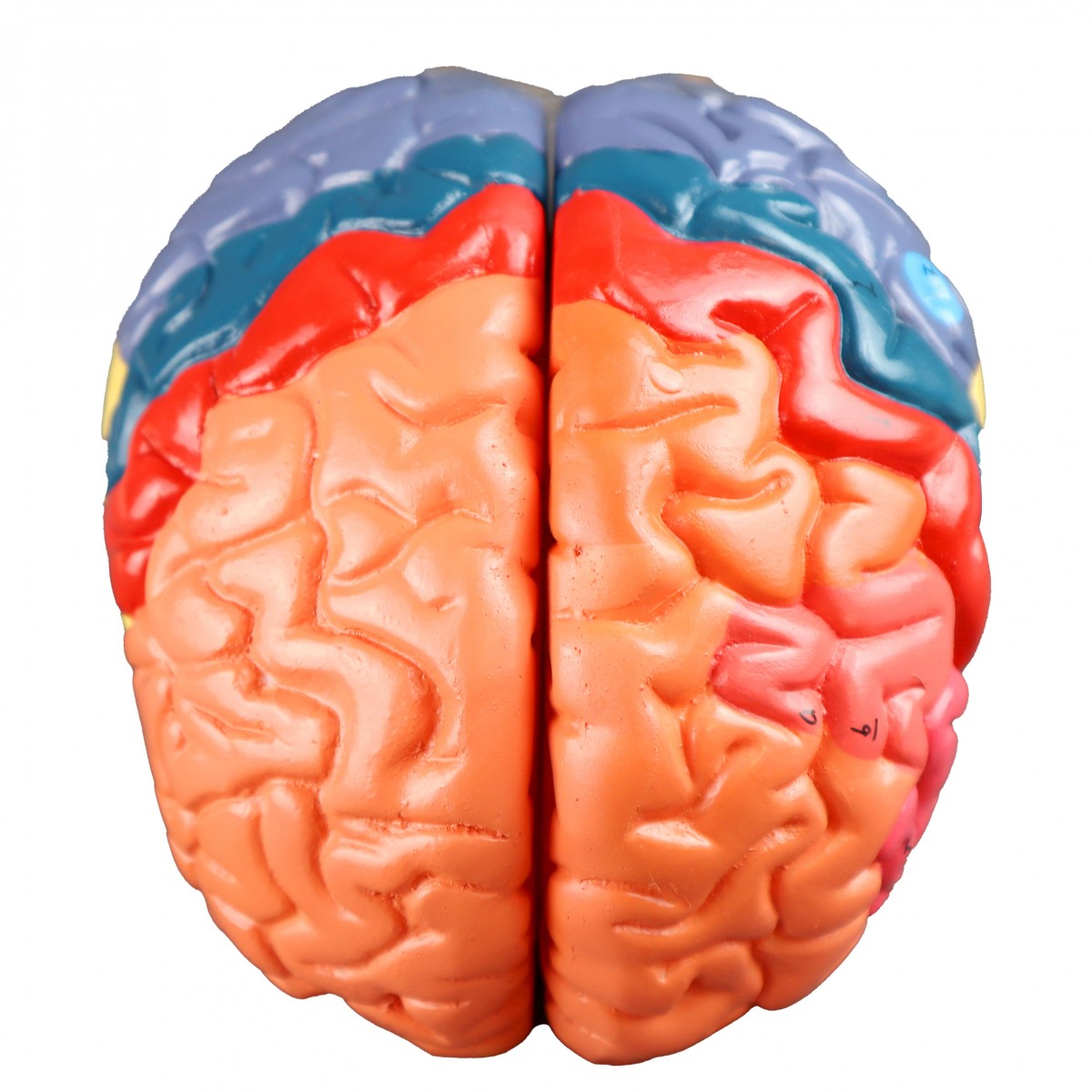
Walter Regional ColorCoded Brain Head, Brain, Nervous System Human Anatomy Biology
Color is a sensation created in the brain. If the colors we perceived depended only on the wavelength of reflected light, an object's color would appear to change dramatically with variations in.

Color closeup of a human brain Royalty Free Vector Image
Hermann Whole Brain Thinking Model. When Ann-Louise asked what color they thought they were, hands were raised enthusiastically and even the "multicolored" individuals were able to identify a dominance of the four.

KIMS.B Consulting WHAT IS COLORED BRAIN AND HOW IT CAN BENEFIT YOUR ORGANIZATIONAL DEVELOPMENT
Brain Color Test After the Debate Died Down The human brain color physically is white, black, and red-pinkish while it is alive and pulsating. Images of pink brains are relative to their actual state. The brains seen in movies exhibit white, gray, and yellow shadows because they are disconnected from the blood and oxygen flow.
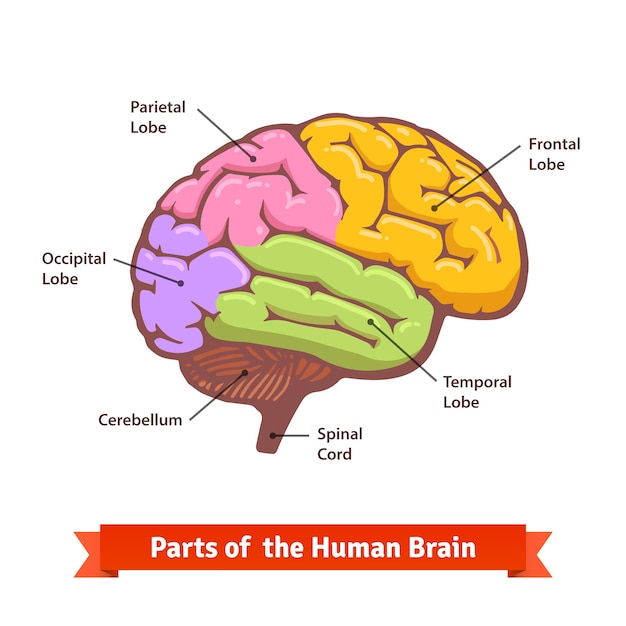
Free Vector Colored and labeled human brain diagram
Here are a few colors and the corresponding impacts they have on the brain: Dark Blue - associated with night, often leads to passivity. Blue and Green - calming - blue is the most preferred color across cultures. Red and Orange - arousing. Red - may stimulate excitement and is used to light gambling casinos. Pink - interestingly.

Human brain color pattern Royalty Free Vector Image
What part of the brain controls color perception? The occipital lobe controls color perception. The brain (specifically the visual cortex, which is found in the occipital lobe) is responsible for making color perception conscious. There are different definitions of color.

Color coded brain depicting the following areas from an inferior view frontal lobe (green
Which areas of our brains represent the colors we see? - Neuroscience News That work revealed a similar color perception phenomenon, but did not identify which areas of the brain were responsible. Image is in the public domain. Summary: Neuroimaging study sheds new light on how we perceive colors.

Brain anatomy color scheme Royalty Free Vector Image
This is your brain, in glorious color Science News This is your brain, in glorious color A new interactive map of a fragment of a human brain gives new insights into its structure. An image.
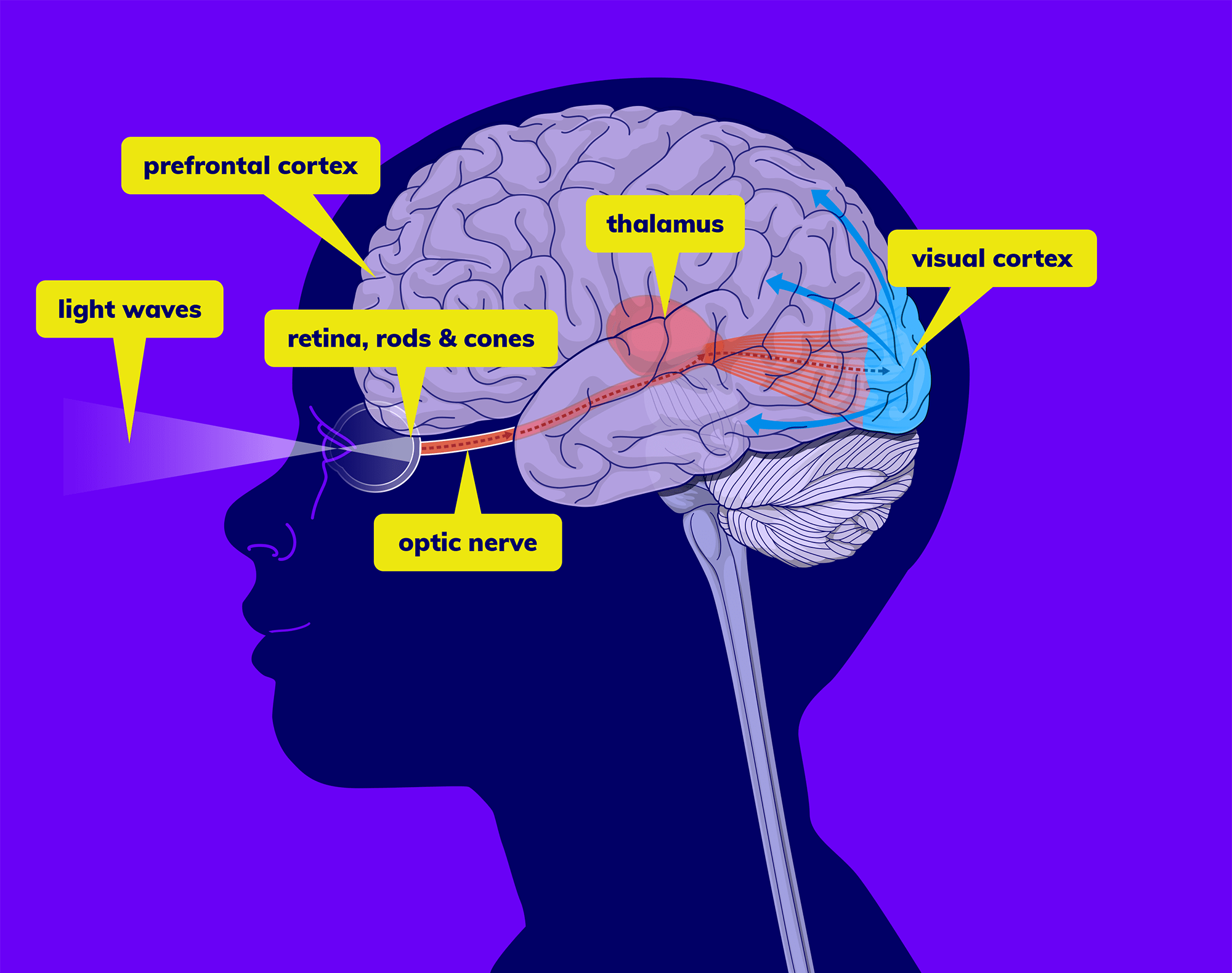
How We See Color American Museum of Natural History
Yes. The lens yellows with age, especially after the age of 40, and that reduces the amount of blue light that reaches the retina. There's also the macular pigment, which also absorbs short.

Alive Child and Family Counselling Centre Fact Friday We Use 100 of Our Brains
What is Colored Brain™ The CBCI™ is a tool that identifies an individual's genetic Ambiguity Relief brain processing inclusive of additional learned flexibility, action sequences, and areas where one may have difficulty in communicating with others.
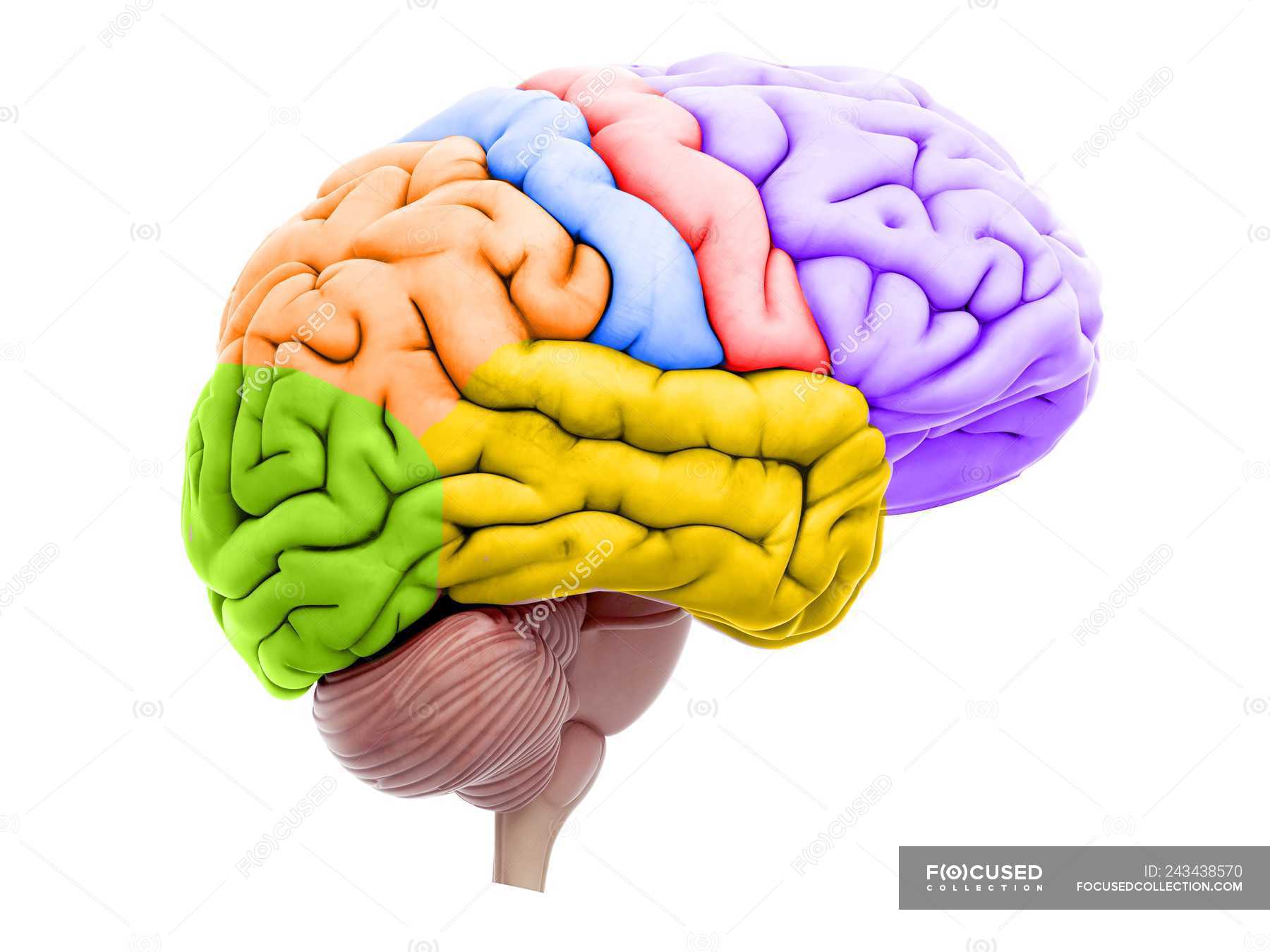
Illustration of colored brain sections on white background. — science, anatomy Stock Photo
What Color Is The Human Brain? The brain is black, white, and pinkish-gray while alive, owing to its components. Most of the outer parts of the brain are made of gray matter, which gives it its color. White matter is 60% of the brain, while gray matter takes 40%.

Colored Sections Human Brain Stock Photo Image 13076670
An NIH experiment finds a way to measure what happens after light hits the eye—using brain scans. Bevil Conway, an artist and neuroscience researcher at the National Institutes of Health, is.
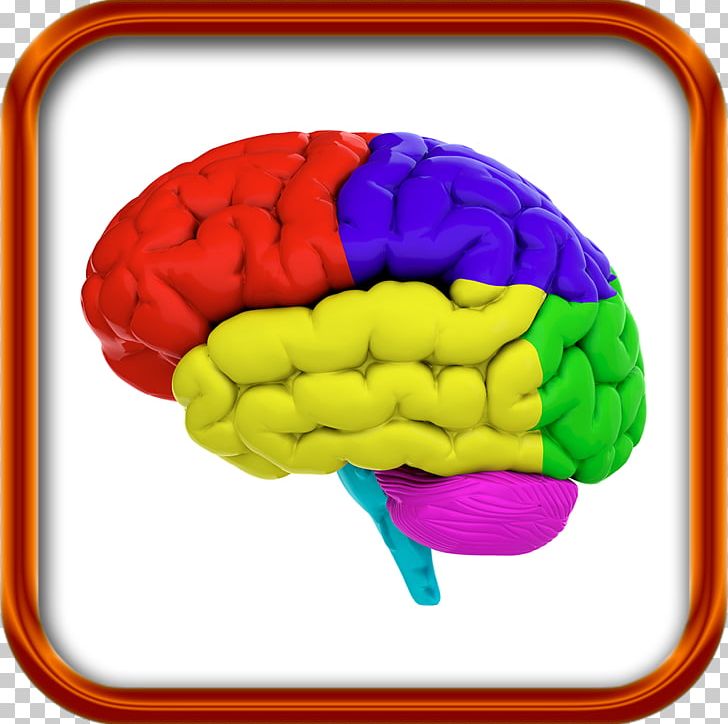
Lobes Of The Brain Stock Photography Human Brain Color PNG, Clipart, Anatomy, Brain, Brain
Anatomy Cross section of the olfactory bulb of a rat, stained in two different ways at the same time: one stain shows neuron cell bodies, the other shows receptors for the neurotransmitter GABA. The shape and size of the brain varies greatly between species, and identifying common features is often difficult. [5]

Diagram of Human Brain System Health Images Reference
Based on new research, a Colored Brain is a psychometric tool that incorporates the latest research on neuroplasticity and how neurotransmitter substances and "brain communication" work. Renowned motivational leadership keynote speaker and trainer Arthur Carmazzi, the Founder of Directive Communication International, dives into the Colored.
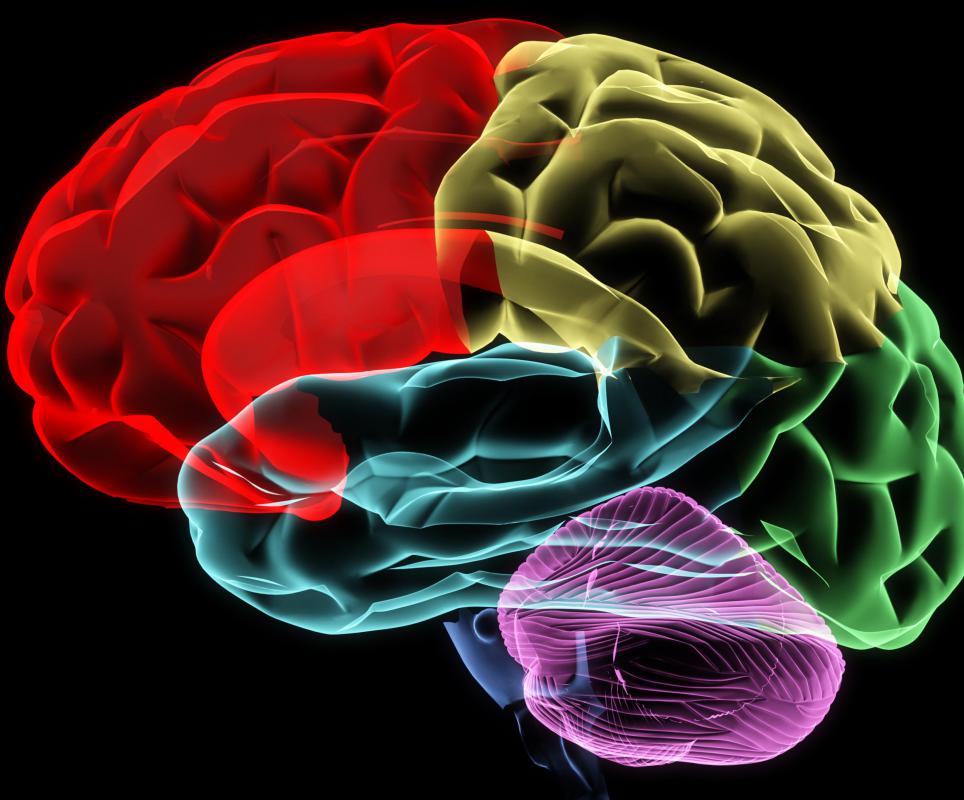
Where are the Different Brain Regions? (with pictures)
Color connects neural pathways and integrates the 12 intelligences, enabling learners to construct meaning and make deeper cognitive connections with content. Color also creates a physiological and emotional response that impacts learning. Every color has a specific wavelength and each of these affect our body and brain in a different way.

Colored Brain to improve communication skills Arthur Carmazzi
Color is an important stimulus for the brain because 80 percent of our sensory impressions come from our visual system. Some research suggests that the pituitary gland, which is responsible for.
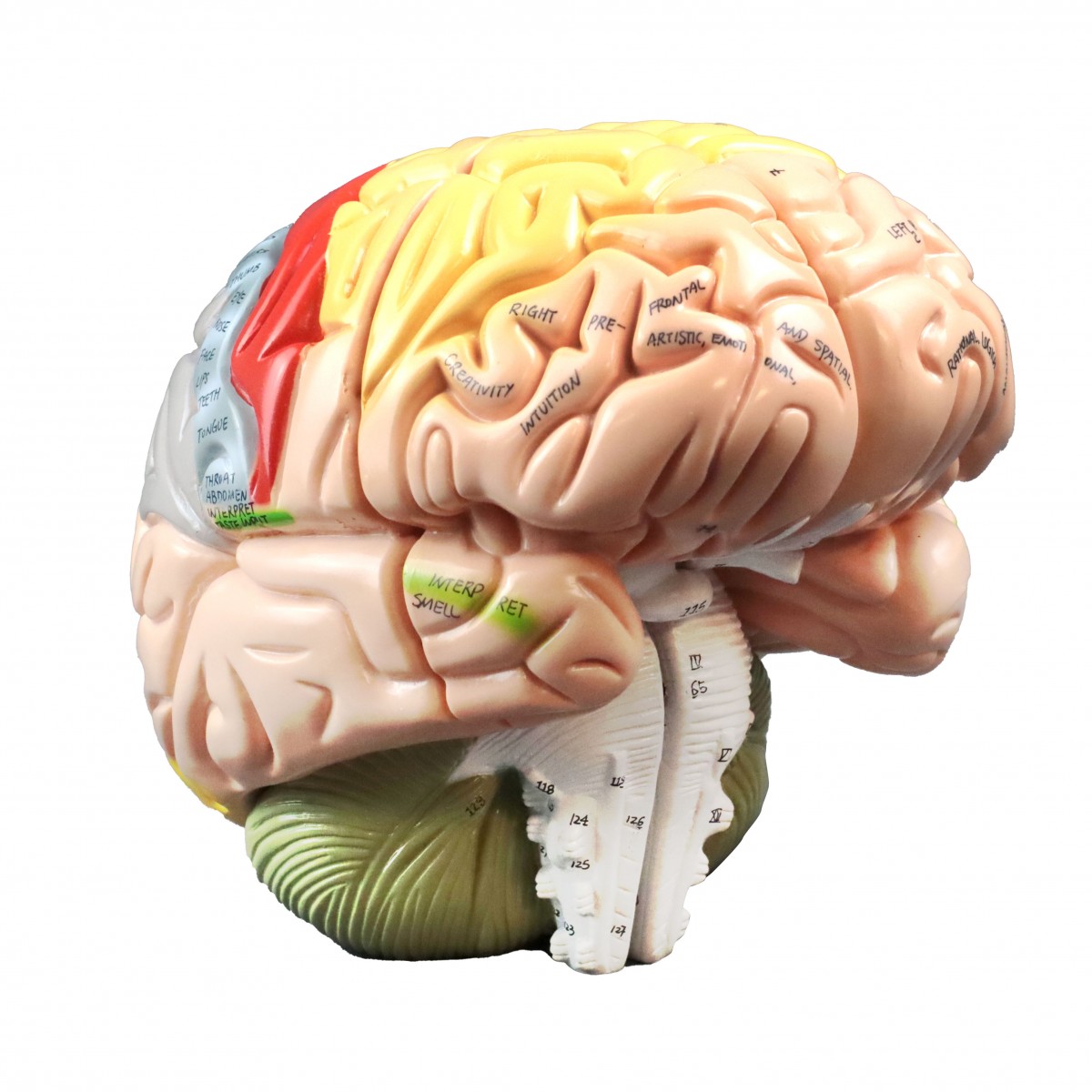
VAB400 ColorCoded Human Brain Brains & Nervous System Anatomical Models
The brain is a complex organ that controls thought, memory, emotion, touch, motor skills, vision, breathing, temperature, hunger and every process that regulates our body. Together, the brain and spinal cord that extends from it make up the central nervous system, or CNS. What is the brain made of?